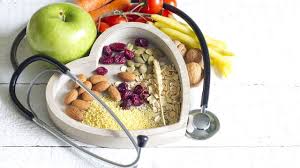Source: livestrong.com
Many of us often feel bombarded with ever-changing and confusing nutrition advice. If that well-intended guidance leaves your head spinning, rest assured that recommendations for a heart-healthy diet have stayed relatively consistent over the years.
A good rule of thumb for heart-protecting eating is to choose the foods you know are good for you — fruits, vegetables, whole grains, lean meats and low-fat dairy — and limit others that might not be the best choice to eat in excess.
So, to keep your heart beating like a champ, you’ll want to watch out for foods high in sodium, added sugar and saturated fats as well as highly processed and fried foods, which all won’t benefit your ticker.
1. Foods High in Sodium
A whopping 33 percent of people in the United States have high blood pressure (aka hypertension), according to the Centers for Disease Control and Prevention.
That means that their blood pressure is above 140/90, which is way higher than the recommendation to keep it under 120/80. All of that excess pressure on the heart puts you at risk for a heart attack, stroke, kidney failure or even loss of vision, according to the American Heart Association (AHA).
Excess sodium in the diet is one of the main contributors to high blood pressure. And one of the reasons why taking in too much salt is harmful to the heart is because it increases the amount of water retained by the body, according to a September 2019 article published in Nutrients.
All of that extra fluid is hard on the heart and limiting foods high in sodium can help you cut back on your salt intake and help lower your blood pressure.
Salty Foods to Limit
- Cured and processed meats (such as deli meats, jerky and canned meat)
- Salty snacks (such as pretzels, chips and crackers)
- Frozen dinners
- Fast food
- Processed cheese
Read more: 10 Effortless Ways to Finally Cut Down on Salt
Are You Taking in Too Much Salt?
Track your nutrients by logging your meals on the MyPlate app. Download now to fine-tune your diet today!
2. Foods High in Added Sugar
You know that foods high in added sugar are not good for your health, but did you know that they are especially harmful to your heart?
People who took in 17 to 21 percent of their daily calories from added sugar were observed to have a 38 percent higher risk of dying from heart disease than those who only took in 8 percent of their calories from added sugar, a study published in April 2014 in the Journal of the American Medical Association found.
Researchers aren’t sure exactly why this is the case, but they have some theories to help explain it: Excessive added sugars in the diet may lead to weight gain and high blood pressure, and added sugars have been tied to increased inflammation in the body — both of which are risk factors for heart disease.
The AHA recommends that women keep their intake of added sugar below 100 calories (about 6 teaspoons) and men stick to no more than 150 calories (9 teaspoons) per day. That comes out to around 5 to 7 percent of daily calories.
Elizabeth Ward, RDN of Better is the New Perfect, thinks of it this way: “I don’t drink sugary beverages mainly because I don’t want to spend calories on drinks that have nothing to offer but added sugar.”
Sugary Foods to Limit
- Sugar-sweetened beverages (such as soft drinks, sports drinks, sweetened tea and coffee drinks)
- Candy
- Desserts
- Condiments (such as ketchup and BBQ sauce)
- Processed foods (such as soups, cereals, granola bars and frozen meals)
Refined grains have been shown to increase your risk for heart disease, according to a September 2019 clinician’s guide published in Mayo Clinic Proceedings: Innovations, Quality, and Outcomes.
Refined grains pose a double whammy for heart health: They barely contain the fiber that whole grains have (and fiber has been linked to improved glucose control and helping to lower cholesterol) while many refined grains also sneak in added sugars, which should be limited.
This doesn’t mean you have to cut white rice and bagels completely. To get fiber and gain all the heart-healthy benefits, simply make half of the grains you eat every day whole grains.
“While I still love white rice and yellow rice, I do limit how often I enjoy them,” KeyVion Miller, RDN of KeyVion Miller Nutrition, says. “I instead choose brown rice and quinoa because I want all the nutrition that eating whole grains provides.”
Processed or Refined Grains to Limit
- White bread
- White rice
- Crackers
- Desserts and pastries made with refined flour
